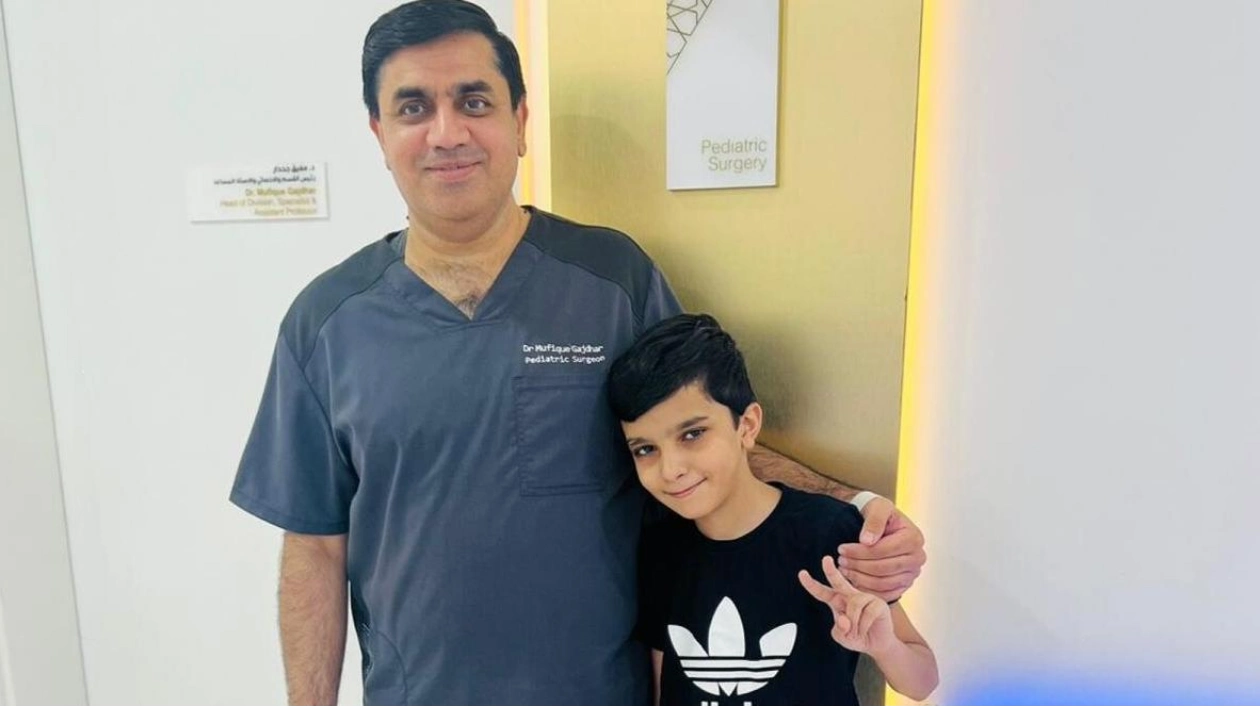Ten-year-old Sheikh Hasnain Faizan used to experience discomfort in his lower body. Gradually, the pain intensified, causing him to miss school and give up his favorite sport, football. Initially dismissed as normal growing pains, it turned out to be a rare condition affecting his male reproductive organ.
Recalling those challenging times, Sheikh's mother, Maryam Faizan, mentioned that he had difficulty fully expressing his symptoms, which made it hard for them to understand the cause of the pain. She acknowledged that many boys his age face a common challenge of discussing intimate health concerns with their parents.
Furthermore, Maryam explained that as parents of a pre-teen child, they had not been actively involved in assisting him with his personal hygiene routines. This lack of close observation resulted in them missing crucial signs and changes in Sheikh's body, including his genital condition.
However, when the pain became unbearable and caused Sheikh immobility, his parents rushed him to a nearby medical facility. An ultrasound revealed that his testes had twisted, leading to a serious deterioration in his condition. The parents were informed that there was a possibility of removing the affected testes, which left them in disbelief.
Maryam emphasized the importance of maintaining open communication with children about their bodies and health, realizing it as a parent after reflecting on their experience. She also stressed the necessity of actively observing and discussing any changes or discomfort their child may experience, no matter how uncomfortable the topic may seem.
Fortunately, after a successful surgery at Thumbay University Hospital, Sheikh's family has been providing him with emotional reassurance and support. The surgery went smoothly, and Sheikh was required to rest for two days before gradually resuming mobility. Despite initial apprehension, he has been coping remarkably well with the recovery process.
Maryam mentioned that the experience brought about some major changes in Sheikh's everyday life. He had to take time off from school to focus on recovering from surgery, which disrupted his academic schedule. Additionally, he had to temporarily give up football and focus on low-impact activities as advised by his healthcare practitioner.
Meanwhile, medical professionals emphasized the importance of recognizing and treating groin discomfort, especially if it is related to an undescended testicle, as soon as possible. Dr. Mufique Gajdhar, a pediatric surgeon at Thumbay University Hospital, urged parents to monitor their child's genital development and promptly consult a pediatric surgeon if any abnormalities are noticed. By addressing undescended testes at an early stage, complications such as torsion can be significantly reduced, ensuring the child's reproductive health and overall well-being.
Undescended testes, which refer to one or both testes not descending into the scrotum, should be surgically corrected before complications arise. Neglecting this condition can lead to serious consequences, as observed in Sheikh's case. The untreated undescended testes remained above the scrotum, making it prone to complications like torsion.
Torsion occurs when the testes twist upon its blood supply, resulting in a medical emergency. Without immediate intervention, compromised blood flow can cause testicular tissue death, necessitating surgical removal. Although Sheikh's testes were saved, his case highlights the critical importance of early detection and intervention.






